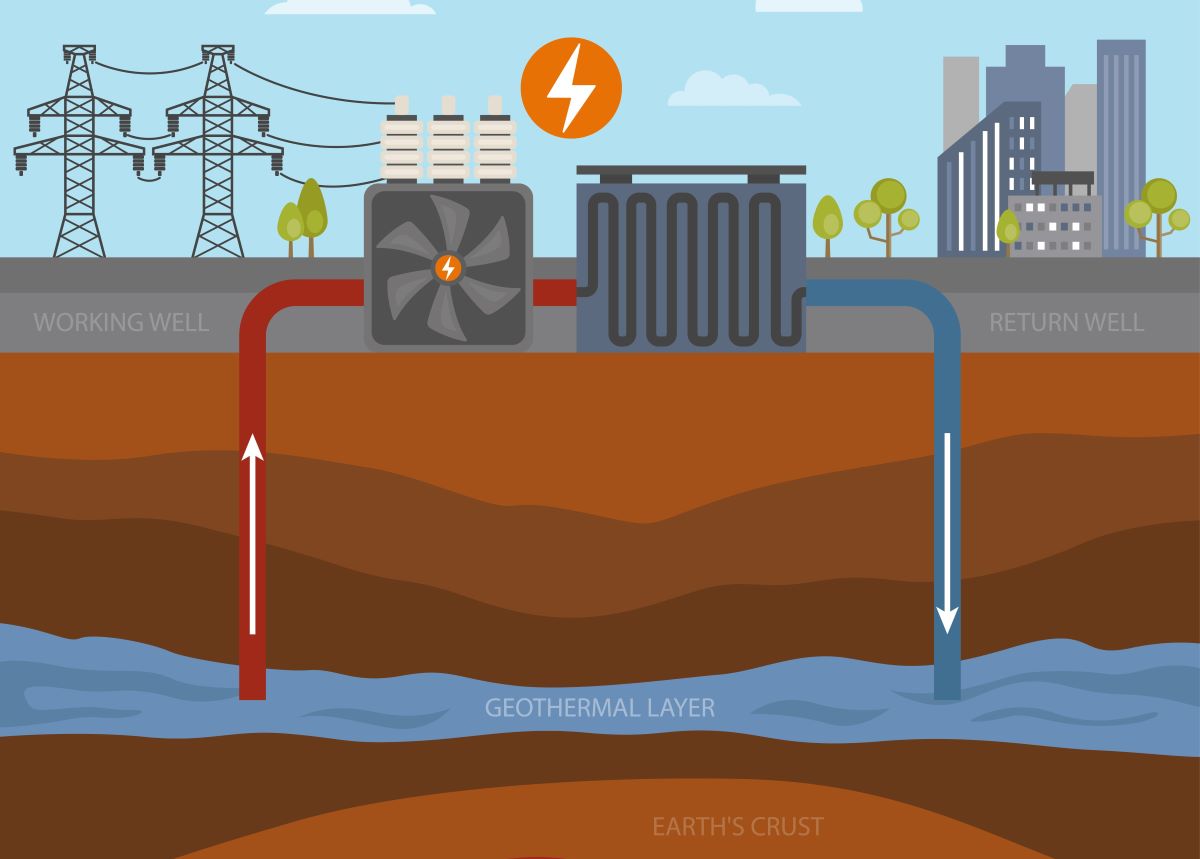Geothermal Energy in an Urban Context: MUSA Studies the Impact of Wells on the Milanese Territory.
The report, as of the threshold of 2023, indicates 897 authorized installations with 1,977 discharges.
Between 2018 and 2022, in the city of Milano alone, authorized geothermal wells increased by 60%. In 2022 alone, one hundred drilling authorizations were issued, with 73 of them related to heat pump systems, totaling 309 authorized wells. As of the threshold of 2023, there are a total of 897 authorized installations with 1,977 discharges.
These are the figures on geothermal energy in an urban context provided by the report from DISAT – the Department of Environmental and Earth Sciences – at the University of Milano-Bicocca within the framework of the urban regeneration projects of MUSA. The report was presented on June 26th and involved various local authorities to highlight and find solutions to the difficulties affecting the geothermal sector in the Milanese territory.
The context provided by the DISAT professors allowed for a historical overview of the behavior of Milano groundwater over the last 50 years, as well as research and experimentation in terms of modeling. Among the stakeholders who participated in the first part of the workshop, there was interest from legislative bodies in aligning legislative requirements with technical feasibility.
The Metropolitan City of Milano has expressed interest in collaborating with DISAT in terms of modeling and monitoring the groundwater of the Milano territory with a focus on resilience and sustainability. They declared their willingness to provide financial and technical support for the development of monitoring and modeling tools.
During the workshop, attention was focused on the economic and environmental benefits associated with geothermal energy, including business models, regulatory barriers, economic and socio-behavioral factors, and enabling factors for the development of activities. The research revealed a strong interest from the administrations involved in addressing the sustainability and management of geothermal installations, especially in the city of Milano. There was also a consensus on the need for a centralized monitoring and management strategy that would leverage the resource in the short and long term based on the knowledge acquired from the University of Milano-Bicocca.
Effective management of geothermal installations is essential for estimating the resource and its sustainable utilization in a high-density urban context, compatible with other uses. Additionally, there is a need to integrate the water and energy sectors and the stakeholders involved to overcome information asymmetries and shift from constraint to opportunity and innovation, converging technical, technological, economic, strategic, and regulatory aspects. This involves sharing perspectives and objectives among stakeholders to create synergy between designers, administrations, and research. Furthermore, initial steps have been taken toward the idea of large-scale subsurface thermal management—a complex challenge requiring appropriate skills and resources.
Three lines of research and in-depth analysis on the subject have emerged: first, identifying the nodes and barriers in the geothermal use of water resources; second, identifying and evaluating the integrated benefits of exploiting water resources for geothermal use; and third, innovating business models. Within the MUSA project, these research lines will be further explored and expanded. On an international level, there are differentiated solutions for the exploitation of water resources for geothermal use, differing in terms of the primary source, scale of application, generated benefits, stakeholders involved, and the adopted business model.
Each solution produces different benefits and is conditioned by specific contextual factors, such as policy frameworks, resource availability, urban form and density characteristics, and urban regeneration opportunities. These factors determine the scalability of the solution and its related business model in the metropolitan context of Milano.





